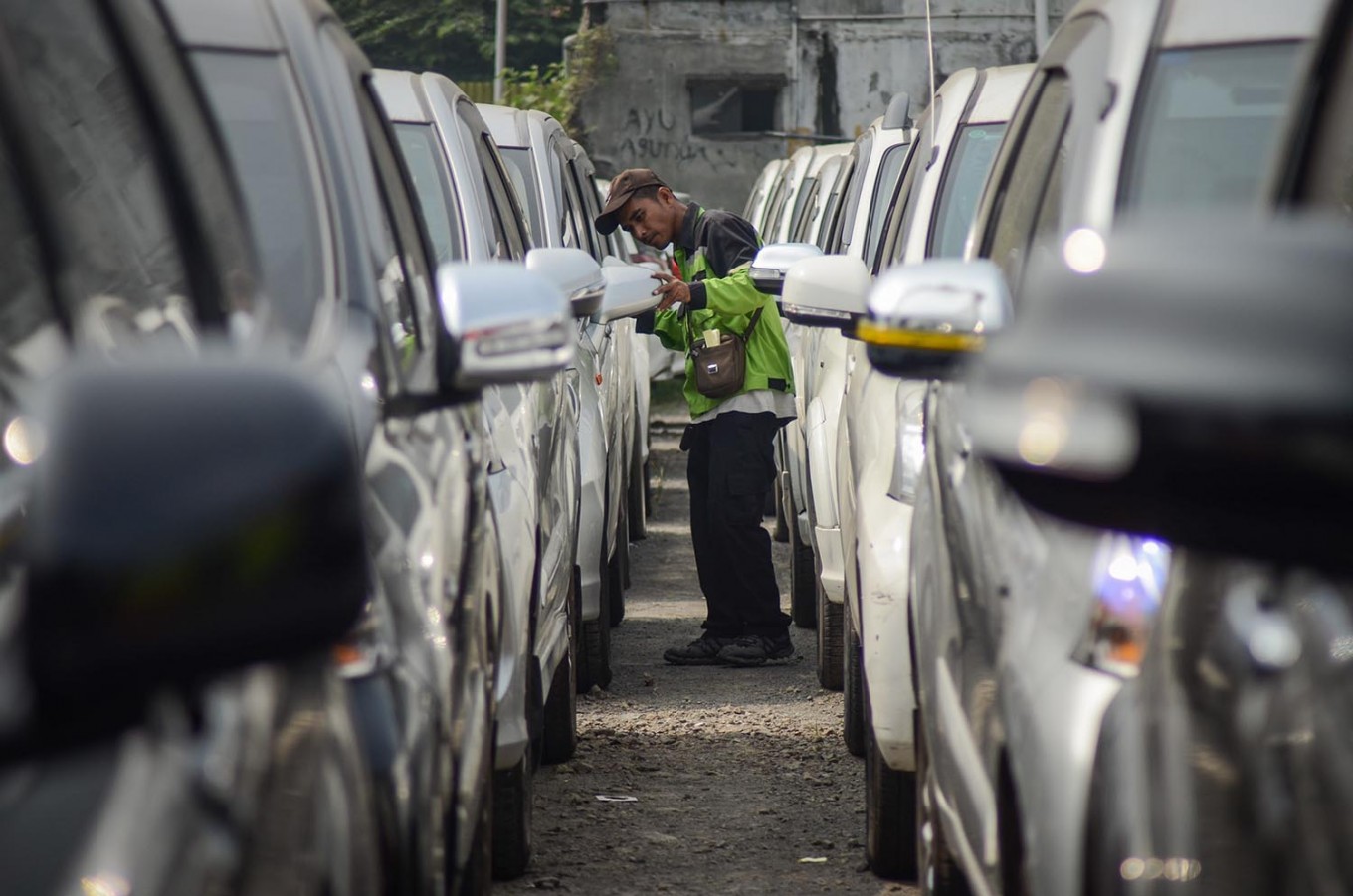Popular Reads
Top Results
Can't find what you're looking for?
View all search resultsPopular Reads
Top Results
Can't find what you're looking for?
View all search resultsPent-up demand boosts car sales in November
Car wholesales rose by 9.84 percent month-to-month to 53,844 vehicles in November.
Change text size
Gift Premium Articles
to Anyone
T
he domestic wholesales of cars continued their upward trend in November, driven by pent-up demand as economic activity starts picking up.
Car wholesales rose by 9.84 percent month-to-month to 53,844 vehicles in November, according to Indonesian Automaker Association (Gaikindo) data compiled by diversified conglomerate PT Astra International circulated on Tuesday.
Despite the rise, the figure was still down by nearly 41 percent from 91,240 cars sold in November last year. This led to a shrinking market share for Astra International, from 52 percent in 2019 to 45 percent this year.
“[Wholesales] are still hovering at around the 50,000 level, which is good enough,” Gaikindo secretary-general Kukuh Kumara told The Jakarta Post in a phone interview on Wednesday. “The figure should have been higher because logistical and transportation needs do still exist.”
Kukuh said the uptick in car wholesales was driven by pent-up demand and the conclusion of some infrastructure projects, like toll roads connecting cities across provinces. Some consumers with sufficient income might buy a car to feel safe from potential COVID-19 transmission on public transportation, he added.
The coronavirus outbreak has hit the automotive sector hard as decreasing income pushes consumers to postpone big-ticket purchases such as cars, while movement restrictions discourage them from leaving their homes.
Car wholesales crashed by almost 96 percent year-on-year (yoy) to just around 3,500 vehicles in May, with rebounds in sales in the following months remaining below industry expectations.
“Leading up to the end of 2020, we hope that people’s purchasing power will keep improving so that it can bolster car sales in December. We hope this can help [the industry] achieve its national car sales target,” Astra International head of corporate communications Boy Kelana Soebroto said as quoted in a statement on Tuesday.
Indonesia’s consumer confidence improved significantly in November but remained in the pessimistic territory, as consumers were still concerned about the current economic situation but grew hopeful about activity in the next six months. Another indicator, namely core inflation, also reflected a deteriorating purchasing power in November.
Household spending, which accounts for more than half of the country’s gross domestic product (GDP), was still down by 4.04 percent yoy in the July-September period, Statistics Indonesia (BPS) data shows, deeper than the 3.49 percent contraction suffered by the whole economy.
Overall, cumulative car wholesales reached 421,089 during the January-October period, around half of the level seen in the same months last year, according to Gaikindo.
The sluggish sales have prompted the association to slash its 2020 car wholesales projection further to 525,000, down by 75,000 from the previous revised projection. The new projection was around half of the sales seen last year.
Production is also estimated to fall by 39.8 percent to 775,000 cars in 2020 from a year earlier, according to a news release from Gaikindo.
“When we made the 600,000 cars [wholesales projection earlier], we assumed the pandemic would be under control by June. But the reality is that we saw another PSBB in September, so we made a correction,” said Kukuh, referring to the large-scale social restrictions in Jakarta.
Gaikindo now expects car wholesales to pick up to 750,000 in 2021.
Indonesia continues to see a rise in daily new COVID-19 cases, which has led to at least 636,000 cumulative cases and more than 19,200 deaths as of Wednesday afternoon, official data shows.
The slowdown in the car market was driven partly by the improvement in public transportation and the increasingly high cost of having a car, said Andry Satrio, the head of the center for industry, trade and investment at the Institute for Development of Economics and Finance (Indef).
“The market is currently saturated. There is also a shift toward motorcycles, which shows the opposite trend [than that of the car market],” Andry told the Post via text message on Wednesday.










